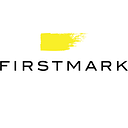How To Define Your Brand As A Direct-to-Consumer Company
Building a truly great brand can be the difference between success and failure in the direct-to-consumer world. Capturing the hearts, minds, and wallets of consumers for products that many will never see in-person until they’re on the doorstep is no easy task.
These products are often introduced to the world via strategic marketing campaigns of subway ads, Instagram posts, Facebook videos, YouTube influencers, and more. The brands must be digitally-savvy, consumer-friendly, and most importantly, memorable enough to stand out amidst the noise.
Clearly, building a great brand is easier said than done.
Here at FirstMark, we’ve learned a lot about direct-to-consumer brands both through our portfolio investments in companies like Ro, Hubble Contacts, Tommy John, and Brooklinen (to name a few), as well as through our relationships with past speakers at our FirstMark events. A speaker network of leaders from Candid, Barkbox, LOLA, and many more.
We wanted to hear the founders’ perspective, so we asked them:
What advice would you give a founder on the importance of defining a direct-to-consumer brand?
And here’s what they had to say:
Henrik Werdelin, Co-Founder of Barkbox
The exciting thing, which is also the scary thing, about being direct-to-consumer is that you don’t have anyone between you and the individual customer. You don’t have some opaque intermediary telling you what the customer wants — so you have to listen.
The exciting (and scary) thing about D2C is that you don’t have anyone between you and the individual customer.
When you’re defining your brand in the space, it’s not just you. It’s a conversation! You’re listening, the customer is listening, and if you do it right and you are sincere, you end up in a great relationship.
When we started, we were all in. Matt and Carly — my cofounders — and I, we were answering the phones and packing the boxes. In the early days, if you tweeted at BarkBox and we tweeted back… that was me. We are bigger now, but we still read all the comments and often reply to emails and social. It taught us that brand is not something that you can slap on to a product. For us it’s the outcome of the relationship built over time with the dogs we serve and their parents. We care a ton about them — and they care about us.
Zach Reitano, Co-Founder & CEO of Ro
Historically, brands were status symbols. But, more and more brands have transitioned over time from status symbols to value systems.
Consumers, now more than ever, are voting with their feet based not just the product itself but what the company behind it stands for. When starting a direct-to-consumer brand make sure to spend the time defining your values, your reason for existence, because it will distinguish you from the pack.
Brands have transitioned from status symbols to value systems.
Jesse Horwitz, Co-Founder & Co-CEO of Hubble Contacts
Focus. There’s a lot to get distracted by in building a D2C business, and if you can’t find those distractions yourself, vendors will happily fill your inbox with a panoply of attribution tools and marketing products. We’ve certainly gotten distracted many times by the desire to look cleverer than we are.
Paid social is what created this wave of D2C brands and heads-down focus there is generally rewarded.
We’ve certainly gotten distracted many times by the desire to look cleverer than we are.
Lilla Cosgrove, Co-Founder & Head of Product of Candid Co.
Building a trustworthy brand is critical to success in direct-to-consumer, but brand doesn’t mean a logo or a color palette — it’s the manifestation of a high-quality end-to-end experience. DTC brands usually can’t rely on a recognizable name nor previous customer experience with the product, so you have to build a holistic experience that breeds trust and a long-term customer relationship from the jump. Moreover, that holistic experience has to hit the right balance of convenience, personalization, price and quality.
Brand doesn’t mean a logo or a color palette — it’s the manifestation of a high quality end-to-end experience.
To be clear, a great brand alone won’t support a business where the unit economics don’t work, so that’s a necessary baseline, but thinking carefully about how your product or service is a better balance of those four pillars than the existing offerings is a great start.
Alex Friedman, Founder & CEO of LOLA
When defining a D2C brand, the most important advice I would give to founders is to look beyond your product or service offerings and tie your brand to a larger purpose. These days, consumers strive for connectivity and want to truly believe in what they purchase. This ‘belief’ goes beyond product effectiveness and extends into the larger mission or narrative consumers can relate to, as they ultimately want to see themselves in the brands they engage with.
Look beyond your product or service offerings and tie your brand to a larger purpose.
At LOLA for example, though we offer reproductive health products, we’re focused on becoming a lifelong brand for women, there for her throughout her entire reproductive life cycle. We do more than just present a new choice on the market — we provide the information and resources women need to make informed decisions while empowering them to take control of their reproductive health.
